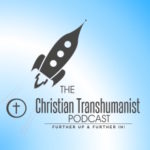We run our website the way we wished the whole internet worked: we provide high quality original content with no ads. We are funded solely by your direct support. Please consider supporting this project.
What is the significance of Exodus 13:17?
The Lord didn’t lead Israel along the shortest route to Canaan because Israel would have had to fight the Philistines. The Lord wanted to avoid this, “Lest the people change their minds when they see war, and they return to Egypt.” [NIV: “If they face war they might change their minds and return to Egypt”].
A God who faced an exhaustively settled future could not genuinely think in terms of what people might do. He would be eternally certain of exactly what everyone would do. The fact that the Bible records God thinking and speaking using terms like “if,” “perhaps” and “maybe” is evidence that God faces a partly open future. It should be noted that verses such as this one are impossible to explain as “phenomenological” or as “anthropomorphic,” for the author is reporting something we never would have known had he not told us—viz. God’s thought process.
Category: Q&A
Tags: Open Theism, Q&A
Topics: Open Theism
Verse: Exodus 13
Related Reading

What Does Greg Think About _________________?
Since the launch of the new website yesterday, I’ve been browsing around the various topics to see what I can find. You can click here to join me. This is awesome. If you want to know what Greg has to say about the nature of the future and God’s knowledge of it, you can find…

God’s Moral Immutability
Classical theologians from the fourth and fifth centuries on were very concerned with protecting their understanding of the metaphysical attributes of God—like timelessness, immutability, impassibility—by assessing biblical portraits that conflicted with these attributes to be accommodations. However, once we resolve that all our thinking about God must be anchored in the cross, our primary concern…

How do you respond to Acts 2:23 and 4:28?
Question: Acts 2:23 and 4:28 tell us that wicked people crucified Jesus just as God predestined them to do. If this wicked act could be predestined, why couldn’t every other wicked act be predestined? Doesn’t this refute your theory that human acts can’t be free if they are either predestined or foreknown? Answer: In Acts…

Love and Free Will
God could have easily created a world in which nothing evil could ever happen. But this world would not have been capable of love. God could have preprogrammed agents to say loving things and to act in loving ways. He could even have preprogrammed these automatons to believe they were choosing to love. But these…

Greg’s Interview on The Christian Transhumanist Podcast
Here is an interview I did for The Christian Transhumanist Podcast that I wanted to share with all of you. Micah Redding and I discuss everything from Relativity Theory to Politics. I think you’ll find it interesting, but I want to offer a word of clarification before you listen. At one point in this interview…

Why did God create me to be a pedophile?
Question: Since the first time I experienced a sex drive it’s been directed towards little children. I’ve never acted on this, for I know it’s wrong. But it torments me. Why would God created me with pedophile cravings? Answer: I’m so sorry for your condition and greatly respect the fact that you have committed yourself…
